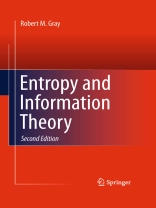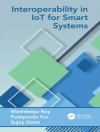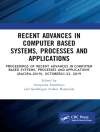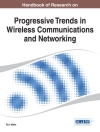This book is an updated version of the information theory classic, first published in 1990. About one-third of the book is devoted to Shannon source and channel coding theorems; the remainder addresses sources, channels, and codes and on information and distortion measures and their properties.
New in this edition:
- Expanded treatment of stationary or sliding-block codes and their relations to traditional block codes
- Expanded discussion of results from ergodic theory relevant to information theory
- Expanded treatment of B-processes — processes formed by stationary coding memoryless sources
- New material on trading off information and distortion, including the Marton inequality
- New material on the properties of optimal and asymptotically optimal source codes
- New material on the relationships of source coding and rate-constrained simulation or modeling of random processes
Significant material not covered in other information theory texts includes stationary/sliding-block codes, a geometric view of information theory provided by process distance measures, and general Shannon coding theorems for asymptotic mean stationary sources, which may be neither ergodic nor stationary, and d-bar continuous channels.
विषयसूची
Preface.- Introduction.- Information Sources.- Pair Processes: Channels, Codes, and Couplings.- Entropy.- The Entropy Ergodic Theorem.- Distortion and Approximation.- Distortion and Entropy.- Relative Entropy.- Information Rates.- Distortion vs. Rate.- Relative Entropy Rates.- Ergodic Theorems for Densities.- Source Coding Theorems.- Coding for Noisy Channels.- Bibliography.- References.- Index
लेखक के बारे में
Robert M. Gray is the Alcatel-Lucent Technologies Professor of Communications and Networking in the School of Engineering and Professor of Electrical Engineering at Stanford University. For over four decades he has done research, taught, and published in the areas of information theory and statistical signal processing. He is a Fellow of the IEEE and the Institute for Mathematical Statistics. He has won several professional awards, including a Guggenheim Fellowship, the Society Award and Education Award of the IEEE Signal Processing Society, the Claude E. Shannon Award from the IEEE Information Theory Society, the Jack S. Kilby Signal Processing Medal, Centennial Medal, and Third Millennium Medal from the IEEE, and a Presidential Award for Excellence in Science, Mathematics and Engineering Mentoring (PAESMEM). He is a member of the National Academy of Engineering.












